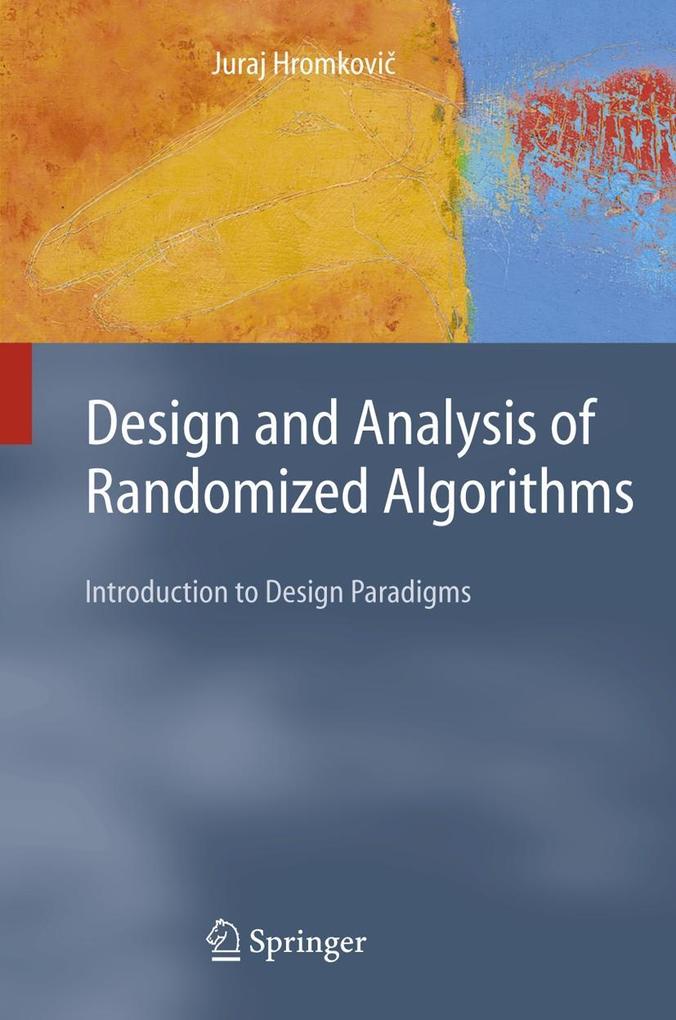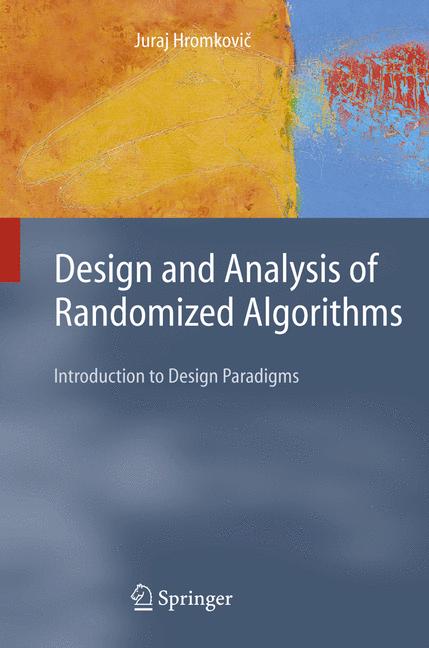
Zustellung: Di, 15.07. - Fr, 18.07.
Versand in 7 Tagen
VersandkostenfreiBestellen & in Filiale abholen:
Randomness is a powerful phenomenon that can be harnessed to solve various problems in all areas of computer science. Randomized algorithms are often more efficient, simpler and, surprisingly, also more reliable than their deterministic counterparts. Computing tasks exist that require billions of years of computer work when solved using the fastest known deterministic algorithms, but they can be solved using randomized algorithms in a few minutes with negligible error probabilities.
Introducing the fascinating world of randomness, this book systematically teaches the main algorithm design paradigms - foiling an adversary, abundance of witnesses, fingerprinting, amplification, and random sampling, etc. - while also providing a deep insight into the nature of success in randomization. Taking sufficient time to present motivations and to develop the reader's intuition, while being rigorous throughout, this text is a very effective and efficient introduction to this exciting field.
Inhaltsverzeichnis
Fundamentals. - Foiling the Adversary. - Fingerprinting. - Success Amplification and Random Sampling. - Abundance of Witnesses. - Optimization and Random Rounding.
Produktdetails
Erscheinungsdatum
14. Juni 2005
Sprache
englisch
Seitenanzahl
277
Reihe
Texts in Theoretical Computer Science. An EATCS Series
Autor/Autorin
J. Hromkovic
Illustrationen
I. Zámecniková
Verlag/Hersteller
Produktart
gebunden
Abbildungen
XII, 277 p.
Gewicht
554 g
Größe (L/B/H)
19/155/235 mm
ISBN
9783540239499
Entdecken Sie mehr
Pressestimmen
From the reviews:
" The book gives an introduction to (design and analysis of) randomized algorithms. It is a self-contained textbook primarily for students. The proofs are precise and contain all details. This makes the book perfect for self-study. A student will be happy to find everything defined precisely and explained in detail. " (Benjamin Doerr, Zentralblatt MATH, Vol. 1083, 2006)
Theory of Computing community (especially those who work on Algorithm Design) is well acquainted with the concept of Randomization. this book still gives a fresh and interesting point of view to Randomization and Randomized Algorithms. This is a very good to excellent textbook on the Design and Analysis of Randomized Algorithms. Its unique feature is that it explicitly isolates and promotes the most important design techniques; this is really a great experience for the incoming theorist to specialize on Randomized Algorithms. (Marios Mavronicolas, SIGACT News, Vol. 40 (2), 2009)
Bewertungen
0 Bewertungen
Es wurden noch keine Bewertungen abgegeben. Schreiben Sie die erste Bewertung zu "Design and Analysis of Randomized Algorithms" und helfen Sie damit anderen bei der Kaufentscheidung.










